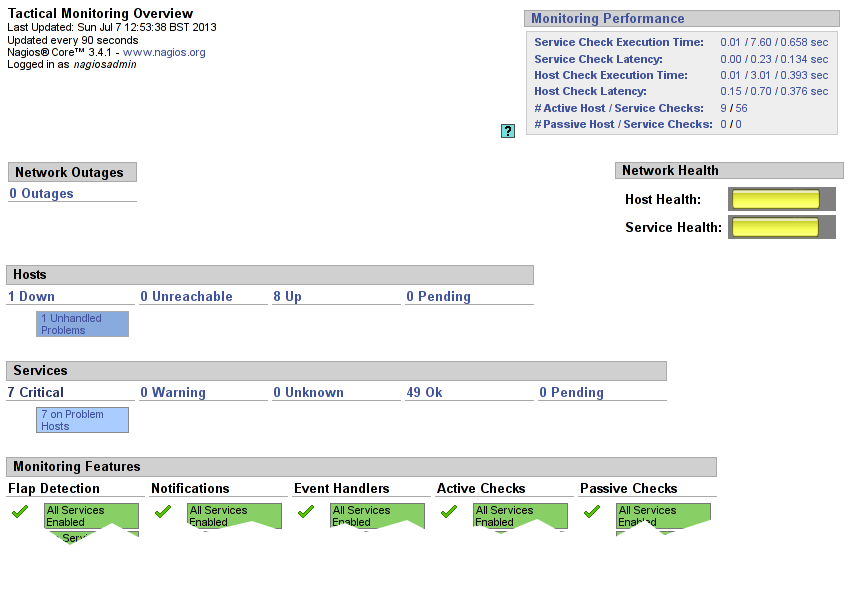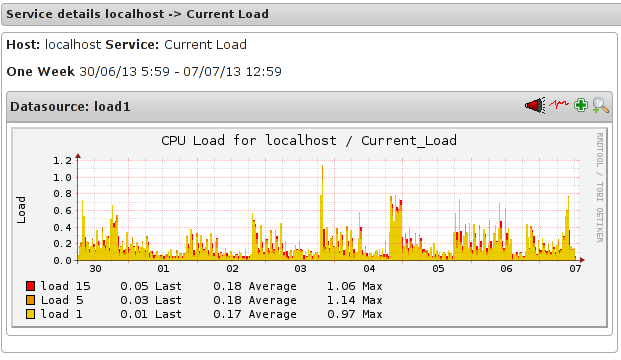- Pressing 'f' toggles fullscreen viewing
- Pressing 'w' toggles widescreen
- Pressing 'o' toggles overview mode
- Pressing 'ESC' toggles off these goodies
Slides produced using code from Google io-2012.
Slides produced using code from Google io-2012.
Full project (small-ish)
Match on:
Order by:
Then:
-- Table: teacher.skills id longcode NOT NULL tid int NOT NULL REFERENCES teachers ON DELETE CASCADE ages int4range NOT NULL REFERENCES lookup.age_ranges (ages) subject longcode NOT NULL REFERENCES lookup.subjects (code) -- Sample data 1 101 [5,11) QTS 2 102 [11,16) MATHS 3 102 [16,18) CHEM
-- Table: teacher.availability wkend date NOT NULL tid int NOT NULL REFERENCES teachers ON DELETE CASCADE avail char(7) NOT NULL -- Sample data 2013-07-07 101 aaaaaaa 2013-07-14 101 HHHHHHH
UK Postcodes
data_20_map.sql data_21_map_traveltimes.sql ... rebuild_db.sh run_tests.sh ... schema_00_users.sql schema_01_database.sql schema_03_types.sql ... t/ testdata/
-- schema_40_teacher.sql
BEGIN;
SET search_path=teacher;
-- ...
CREATE TABLE lookup.age_ranges (
ages int4range NOT NULL,
description text NOT NULL,
PRIMARY KEY (ages)
);
-- ...
-- ROLLBACK;
COMMIT;
BEGIN; COPY lookup.age_ranges (ages,description) FROM stdin; [1,5) Nursery [5,11) Primary [11,16) Secondary [16,18) F.E. \. // etc -- ROLLBACK; COMMIT;
Richard ❤ Rollback
Objectives:
Options:
PSQLCMD=${PSQLCMD:-/usr/lib/postgresql/9.2/bin/psql}
PSQL="$PSQLCMD -X -h $PGHOST -p $PGPORT -U $DBUSER -d $DBNAME
-v dbname=$DBNAME -v username=$DBUSER -v appuser=$APPUSER -v superuser=$SUPERUSER
-v home=$APPDIR/ -v ON_ERROR_STOP=1
-q --pset pager=off"
SU_PSQL=...as above but for superuser
# Halt on any error
set -e
if [ $REBUILD = "Y" ]; then
echo "Creating db..."
$SU_PSQL -f schema_01_database.sql
#
$PSQL -f schema_03_types.sql
$PSQL -f schema_20_map_postcodes.sql
Simple wrapper around pg_prove:
BEGIN;
SET search_path = pgtap, whatever;
SELECT plan(3);
SELECT ok(1 < 2, 'One less than two - phew!');
SELECT is(2, 1+1, 'Addition also ok');
SELECT throws_like('SELECT 1/0',
'%division%',
'Dividing by zero still bad');
ROLLBACK;
Perl script to generate suitable amounts of test data
Reminder:
How to index?
CREATE TABLE search_flags (
tid int NOT NULL REFERENCES teachers ON DELETE CASCADE,
is_active boolean NOT NULL,
flags int[] NOT NULL,
PRIMARY KEY (tid)
);
-- gist|gin__int_ops is from the intarray extension CREATE INDEX tch_search_flags_idx ON teacher.search_flags USING gist (flags gist__int_ops) WHERE is_active;
SELECT tid FROM teacher.search_flags
WHERE is_active AND flags @> ARRAY[1,2,3,1011,2035,10739];
QUERY PLAN
----------------------------------------------------------------------------------------
Bitmap Heap Scan on search_flags (cost=641.79..9653.96 rows=2502 width=4)
Recheck Cond: ((flags @> '{1,2,3,1011,2035,10739}'::integer[]) AND is_active)
-> Bitmap Index Scan on tch_search_flags_idx (cost=0.00..641.16 rows=2502 width=0)
Index Cond: (flags @> '{1,2,3,1011,2035,10739}'::integer[])
CREATE FUNCTION map.pc_to_pt(tgt_pcode varchar(10)) RETURNS point
LANGUAGE plpgsql AS $$
DECLARE
e int;
n int;
BEGIN
SELECT easting,northing INTO e,n FROM map.postcodes WHERE pcode = tgt_pcode;
IF NOT FOUND THEN
e := 0;
n := 0;
END IF;
RETURN point(e,n);
END;
$$ IMMUTABLE;
WITH pcs AS (VALUES ('SE13 6RY'), ('SE9 3JN'), ('W12 9PT'))
SELECT p0.column1 AS from_pc, p1.column1 AS to_pc,
(map.pc_to_pt(p0.column1) <-> map.pc_to_pt(p1.column1)):
from_pc | to_pc | dist
----------+----------+-------
SE13 6RY | SE13 6RY | 0
SE13 6RY | SE9 3JN | 4877
SE13 6RY | W12 9PT | 17020
SE9 3JN | SE13 6RY | 4877
SE9 3JN | SE9 3JN | 0
SE9 3JN | W12 9PT | 21895
W12 9PT | SE13 6RY | 17020
W12 9PT | SE9 3JN | 21895
W12 9PT | W12 9PT | 0
(9 rows)
BEGIN;
SET search_path = pgtap, teacher;
SELECT plan(3);
-- Bad postcode should give (0,0)
SELECT ok(
map.pc_to_pt('ZZ1 1ZZ') ~= point(0,0),
'Bad postcode is 0,0'
);
-- NW postcode should be west of SE postcode
SELECT ok(
(map.pc_to_pt('NW1 8NH'))[0] < (map.pc_to_pt('SE13 7RY'))[0],
'NW is west of SE'
);
-- NW postcode should be north of SE postcode
SELECT ok(
(map.pc_to_pt('NW1 8NH'))[1] > (map.pc_to_pt('SE13 7RY'))[1],
'NW is north of SE'
);
ROLLBACK;
CREATE FUNCTION teacher.booking_candidates(
tgt_pcode varchar,
tgt_age int,
tgt_subj varchar,
tgt_days date[],
max_results int = 10)
RETURNS SETOF teacher.teachers
...
...
BEGIN
tgt_flags := [combine args into flags]
RETURN QUERY SELECT t.*
FROM teacher.teachers t
JOIN teacher.search_flags sf USING (tid)
WHERE is_active AND sf.flags @> tgt_flags
ORDER BY map.pc_to_pt(postcode) <-> map.pc_to_pt(tgt_pcode)
LIMIT max_results;
END;
$$;
SELECT * FROM booking_candidates('SE1 8SW', 9, 'QTS', '{2013-07-08,2013-07-09}');
tid | first_name | last_name | telnum | email | postcode |
-------+------------+-----------+---------------+---------------------------+----------+
31691 | Ray | Leopard | 071 0161 0691 | ray.leopard@google.com | SE17 3DT |
31771 | William | Bee | 071 0841 0771 | william.bee@google.com | SW1V 3EU |
35511 | May | Viper | 071 0381 0511 | may.viper@yahoo.com | SE5 0TS |
46431 | Gil | Viper | 071 0701 0431 | gil.viper@yahoo.com | EC1V 3SJ |
22473 | Yolanda | Dog | 071 0883 0473 | yolanda.dog@bt.com | SE5 0JD |
31191 | Ray | Viper | 071 0661 0191 | ray.viper@yahoo.com | N1 9QG |
44699 | Zack | Denmark | 071 0529 0699 | zack.denmark@google.com | E1 8HY |
2819 | Ulrica | Denmark | 071 0049 0819 | ulrica.denmark@google.com | SW8 4JS |
20411 | May | Leopard | 071 0281 0411 | may.leopard@google.com | SW3 2QS |
48329 | Elena | Denmark | 071 0259 0329 | elena.denmark@bt.com | N1 0WF |
(10 rows)

Setup...
BEGIN; SET search_path=pgtap,teacher,public; SELECT plan(1); CREATE TEMP TABLE expected_vals (i int, tid int, pc varchar, wkend date); CREATE TEMP TABLE actual_vals (i int, tid int, pc varchar, wkend date);
Build our expected results...
WITH tgt_teachers AS (
SELECT * FROM teachers WHERE is_active AND tid < 1000 AND postcode <> 'SE10 8WT'
) ,tgt_wk AS (
SELECT min(wkend) AS wkend FROM availability
) ,selected_teachers AS (
SELECT DISTINCT t.tid, t.postcode, tw.wkend
FROM tgt_teachers t
JOIN skills ts USING (tid)
JOIN availability ta USING (tid)
JOIN tgt_wk tw USING (wkend)
WHERE ts.ages = '[5,11)' AND ts.subject = 'QTS'
AND ta.avail LIKE 'a%'
ORDER BY tid LIMIT 5
)
INSERT INTO expected_vals
SELECT row_number() OVER (), tid, postcode, wkend
FROM selected_teachers;
Giving us this.
i | tid | pc | wkend ---+-----+----------+------------ 1 | 429 | E1 2JU | 2013-07-07 2 | 385 | E1W 3DB | 2013-07-07 3 | 289 | BR1 4LL | 2013-07-07 4 | 149 | SE10 0PU | 2013-07-07 5 | 105 | SE10 0DG | 2013-07-07 (5 rows)
Which we test like this.
DO $$
DECLARE
tst RECORD;
res RECORD;
BEGIN
FOR tst IN SELECT * FROM expected_vals LOOP
res := booking_candidates(tst.pc, 9, 'QTS', ARRAY[tst.wkend-6], 1);
INSERT INTO actual_vals VALUES (tst.i, res.tid, res.postcode, tst.wkend);
END LOOP;
END;
$$;
SELECT results_eq(
$$SELECT i, pc, tid FROM actual_vals ORDER BY i$$,
$$SELECT i, pc, tid FROM expected_vals ORDER BY i$$,
'booking_candidates() finds teacher at exact postcode'
);
In a run like this.
$ pg_prove --port=5433 -U pgday t/* t/20_mode_agg.sql ..... ok t/20_pc_to_pt.sql ..... ok t/20_to_district.sql .. ok t/45_wkend_fns.sql .... ok t/50_bookings.sql ..... ok t/60_flags_set.sql .... ok t/61_avail_flags.sql .. ok t/62_pc_flags.sql ..... ok t/99_permissions.sql .. ok t/avail_rules.sql ..... ok All tests successful. Files=10, Tests=28, 25 wallclock secs ( 0.09 usr 0.03 sys ...) Result: PASS
---
- hosts: all
user: root
tasks:
- name: install pgsql
apt: pkg=$item
with_items:
- postgresql-9.2
- postgresql-client-9.2
- postgresql-contrib-9.2
- postgresql-server-dev-9.2
- pgxnclient
- name: set archive-mode (enabled)
lineinfile: dest = /etc/postgresql/9.2/main/postgresql.conf
insertbefore = "^#archive_mode"
regexp = "^archive_mode ="
line = "archive_mode = on"
state = present
...
- name: start pgsql
service: name=postgresql enabled=yes state=started
Pros:
Cons:
# Nagios NRPE remote config
command[check_root_disk] = /usr/lib/nagios/plugins/check_disk -w 20% -c 10% -p /
command[pgday_lag] = /usr/lib/nagios/plugins/check_postgres.pl --action=hot_standby_delay
--host=localhost,{{hostvars[other_host]['ansible_ssh_host']}}
--dbuser=pgrepl --dbname=postgres --dbpass=abc123
--warning=123 --critical=456


Charts generated by pnp4nagios.
Need a simple script to test random queries.
Our target:
We got:
Try bigger:
OK, bigger again:
But that's because we're matching ~10,000 teachers and only keeping 10 of them.
Restrict the area of search so we only throw 5,000 away and we get...
Thanks to:
Code will be on github shortly. Check planet.postgresql.org for a notice.
Any questions?